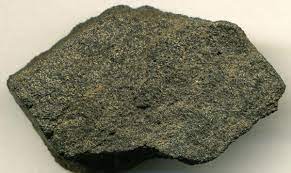
Phosphate is a versatile compound that plays crucial roles in various aspects of life, including agriculture, industry, and the environment. Phosphate, chemically represented as PO43-, is an inorganic compound composed of phosphorus and oxygen. It is an essential element for all living organisms, including plants, animals, and humans. Phosphorus, a vital nutrient, is primarily obtained through phosphates and is necessary for the growth, development, and functioning of various biological systems.
Phosphate exhibits distinct properties that contribute to its diverse applications. It typically exists in solid form, ranging from white to off-white, and is highly soluble in water. Phosphate compounds are characterized by their ability to form strong bonds with metals, facilitating their use in various industrial processes.
Sources of Phosphate
a. Natural Sources: Phosphates are found abundantly in nature. The most common natural sources of phosphate include phosphate rock deposits, which are formed over millions of years through geological processes. These deposits are concentrated in specific regions worldwide, such as the United States, China, Morocco, and Russia.
b. Synthetic Sources: In addition to natural sources, phosphate can also be synthesized through chemical processes. Synthetic phosphate compounds are commonly used in industry and agriculture, providing an alternative to natural phosphate resources.
Nigeria, a country located in West Africa, is blessed with abundant natural resources that contribute to its economic growth and development. One of these valuable resources is phosphate, a mineral widely used in various industries worldwide.
This article explores the phosphate deposits in Nigeria, their locations, and the diverse range of applications for this vital resource.
Phosphate, commonly known as phosphate rock or phosphorite, is a sedimentary rock that contains high concentrations of phosphate minerals. The main phosphate mineral is apatite, which typically consists of calcium phosphate compounds. Phosphate deposits form over millions of years through geological processes involving the accumulation of marine organisms and their subsequent fossilization.
Nigeria's Phosphate Deposits
Nigeria is home to significant phosphate deposits found in various parts of the country. The most prominent phosphate-bearing formations in Nigeria are the Sokoto Group and the Calabar Flank, which are geologically situated in the northwestern and southeastern regions, respectively.
Sokoto Group: The Sokoto Group, located in the northwestern states of Sokoto, Kebbi, and Niger, hosts the largest phosphate deposits in Nigeria. This geological formation is composed of the Dange and Illo Formations, which contain vast reserves of phosphate rock. The phosphate deposits in the Sokoto Group have been estimated to exceed several million metric tons.
Calabar Flank: The Calabar Flank, situated in the southeastern part of Nigeria, covers states such as Cross River, Akwa Ibom, and Abia. This geological formation hosts substantial phosphate deposits, mainly within the Nkporo and Ameki Formations. Although not as extensive as the Sokoto Group, the phosphate reserves in the Calabar Flank are still significant and hold immense potential for future exploitation.
Uses of Phosphate
Phosphate is a versatile mineral that finds applications across various industries, contributing to the development of agriculture, manufacturing, and environmental sectors. Let's explore some of its primary uses:
Fertilizer Production: Phosphate rock is a crucial ingredient in the production of fertilizers. It serves as a direct source of phosphorus, an essential nutrient for plant growth and development. Through various chemical processes, phosphate rock is transformed into phosphate fertilizers like diammonium phosphate (DAP) and single superphosphate (SSP). These fertilizers are widely used in agricultural practices to enhance crop yield and improve soil fertility.
Animal Feed Supplements: Phosphate supplements are vital for animal nutrition. Phosphorus is essential for bone formation, energy metabolism, and overall growth in livestock and poultry. Phosphate minerals, such as dicalcium phosphate and monocalcium phosphate, are commonly incorporated into animal feed to ensure proper nutrient balance and promote healthy animal development.
Industrial Applications: Phosphate derivatives have diverse applications in several industries. In the manufacturing sector, phosphates are used in the production of detergents, soaps, and cleaning agents due to their ability to enhance cleaning performance. Phosphates also serve as additives in water treatment processes, preventing the formation of scale and corrosion in industrial equipment and pipelines.
Metallurgical Processes: Phosphoric acid, derived from phosphate rock, plays a crucial role in various metallurgical processes. It is used in the production of metal phosphates, which find applications in metal surface treatment, corrosion protection, and as catalysts in chemical reactions. Phosphoric acid is also a key component in the manufacturing of phosphoric acid batteries, commonly used in automobiles.
Environmental Remediation: Phosphate compounds have proven to be effective in environmental remediation projects. They are used to immobilize and stabilize heavy metals in contaminated soils and sediments, reducing their mobility and potential for groundwater pollution. Phosphate-based materials are also employed in wastewater treatment facilities to remove excess nutrients, such as phosphates and nitrates, preventing eutrophication in water bodies.
In conclusion, Phosphate deposits in Nigeria, particularly those found in the Sokoto Group and Calabar Flank, represent significant mineral resources with diverse applications. The exploitation of these deposits offers opportunities for economic growth, agricultural development, and industrial advancement.
By harnessing the potential of phosphate rock, Nigeria can meet the growing demand for fertilizers, animal feed supplements, and various industrial products, while also contributing to environmental sustainability through effective waste management and pollution control.
With careful planning, sustainable mining practices, and investment in technological advancements, Nigeria can unlock the full potential of its phosphate deposits for the benefit of its economy and society as a whole.






















